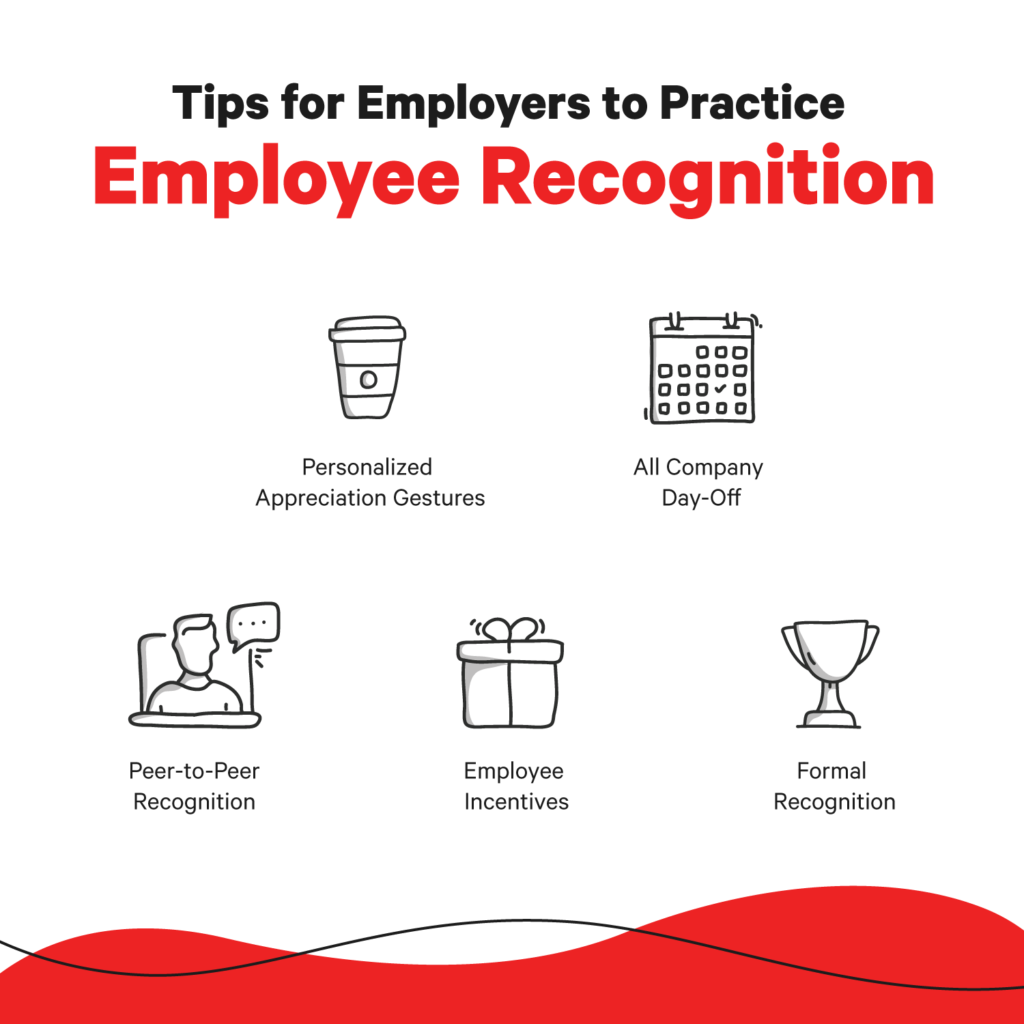Employee recognition is an important concept that has grown in prominence in recent years. Many leaders are now recognizing the importance of giving recognition to employees by showing appreciation, and acknowledging their accomplishments and contributions.
Employee recognition programs encourage acts such as as peer recognition, management-led acknowledgment, and leadership-led recognition. Appreciation and recognition for employees has a huge positive impact on workplace morale. A survey conducted by Bonusly found that 82% consider recognition an important part of their happiness at work.
Even though people are gradually returning to offices in many countries, there are still employees who continue to work in hybrid or from-home settings. This decrease in live human interaction has reduced spontaneous informal acts of employee recognition; all the more reason to make you recognize your employees. Read on to learn more about employee recognition, and more about how leaders can kickstart their company’s employee recognition programs.
What is Employee Recognition?
Employee recognition refers to employers explicitly and attentively recognizing the contributions of their people. For example: publicly praising achievements, giving out incentives, and promoting homegrown employees instead of hiring new ones.
A related concept to employee recognition is social recognition. Social recognition can be defined as an employee reward methodology. In social recognition, specific tools are used to provide a “communal forum” where workers of every level can come together, share their experiences, and assign rewards to or recognize their peers for their accomplishments.
The Benefits of Employee Recognition
Employees who work at organizations with great recognition initiatives and a recognition culture make more significant contributions to the company. By contrast, a survey found that 82% of American professionals feel that they aren’t adequately recognized for their contributions. This only proves that a culture of appreciation and recognition for employees should be a priority for employers.
The Employee Experience Index, by the IBM Smarter Workforce Institute, conducted a study of more than 23,000 workers. The study revealed that when employees receive recognition for doing good work, 83% report a more positive employee experience. On the other hand, when workers don’t receive recognition, only 38% have a positive experience.
Here are some of the key benefits of employee recognition:
- Increase in Productivity
69% of employees say they would work harder if they felt their efforts were being better recognized. Employees that are recognized are more productive, work more effectively, and are more aggressive in completing tasks. Employee recognition is a great motivator, 59% of employees said that they would prefer companies with a rich recognition culture, rather than high salaried jobs that don’t give any recognition.
- Increase in Company Profits
“Recognition is the number one thing managers can give to their employees to inspire them to produce great work. Not even pay hikes, promotion or autonomy come closer to recognition when it comes to motivating employees.”
Forbes
Employees who are recognized by their organization are very much willing to put in the extra effort. When people are invested and involved in their work, they are more likely to work harder than colleagues who are treating their jobs as a means to an end.
A driven employee will inevitably contribute to high productivity and bigger profits. These employees are willing to render extra hours just to see a project through to completion, and they are more than willing to step up and take on new responsibilities when necessary.
- High Employee Retention
Most employees will tend to leave companies and switch jobs if they receive little to no recognition. A low retention rate will also lead to low morale. Also employee turnover is very expensive for the business. The money that you will be spending on recruitment, hiring, and training should just be used for employee recognition programs to spare the company the extra expense.
Employees tend to stay for longer with a single employer if they feel satisfied with how their organization is treating them. There is also a 41% longer employee tenure at companies with high internal hiring compared to those with low internal hiring.
- Better Work Culture
A happy employee will be more likely to be content with their job, thus making the work environment more conducive for everyone. Employees who feel they matter are 4.6 times more likely to feel empowered and will show up every day performing their best work.
A survey also found out that 50% of employees believed being thanked by immediate supervisors not only improved their relationship as a team but also helped build trust with senior management.
Tips for Employers on How to Practice Employee Recognition
The impact of employee recognition has proven to have positive effects in a work environment. That is why appreciation and recognition for employees should be a normal practice for organizations everywhere. Leaders should also double their efforts in rolling out employee recognition programs. Remember, employees that are recognized show up every day driven with passion, purpose, and enthusiasm.

Here are examples of what leaders can do to practice employee recognition:
- Personalized Appreciation Gestures
Employee recognition programs need not be extravagant. As a matter of fact, giving out handwritten cards for birthdays and work anniversaries are more thoughtful and personalized. Sending birthday cakes is also a nice gesture to make an employee feel that they matter.
For those who are still working from home, you can opt for virtual team lunches by giving out restaurant delivery coupons and having small talks over Zoom or Google meet.
- Company Day-Off
Work can be stressful and giving time for the whole company to enjoy a day-off is a big deal for employees. This time-off may be extended weekends, holidays, or shorter work weeks.
If possible, adopting a four-day workweek is a great idea. A study by Henley Business School reports that companies that adopted a four-day week found that over three-quarters of staff (78%) were happier, less stressed (70%), and took fewer days off ill (62%). Though it seems that it will shorten workdays, in the end, it shows that it just boosted productive hours better and left employees happier.
- Peer-to-Peer Recognition
Peer-to-peer recognition is fantastic for teamwork because it inspires employees to notice one another’s excellent qualities. Enabling coworkers to nominate each other for incentives suggests that they value each other’s input.
A survey found out that peer-to-peer recognition is 35.7% more likely to have a positive impact on financial results compared to manager-only recognition. Relationships between colleagues are a huge contributor to a positive workplace experience.
- Employee Incentives
85% of employees feel more motivated to do their best when they have an incentive. By putting together incentive programs will surely make employees feel recognized.
Clearly setting rules for incentive plans and how to get them will help you in setting up employee incentive programs. It could be gift certificates for employees with perfect attendance or leave credits for employees who always clock in on time. Though they are expected to be always present and on time, showing small gestures of appreciation will boost employee morale.
- Formal Recognition (Company Events)
Sometimes employee recognition on a larger scale is needed if you really want to show that the company cares. Management can do this by planning a company event where employees will be formally awarded and recognized for their contribution to the company.
Formal recognition often includes a nomination and selection process and a special event. There can be awards for employee tenure and special recognition for employees who have shown exemplary performance for a year. This event can be hosted during the year-end party where everybody is invited to enjoy themselves.
Employee Recognition: Key to Productivity, Retention, and Job Satisfaction
In today’s competitive work environment, one would think that companies with the most well-trained and skilled employees have a competitive advantage. However, this is not always the case. Even the top-tier employees will perform poorly and be dissatisfied with their job if they don’t feel appreciated. As a result, employee recognition in the workplace must be ingrained in any company’s culture.
Apart from productivity and performance metrics, organizations can leverage employee recognition to promote positive organizational change by engaging people, linking teams, and cultivating an appreciation culture.
Employees who work for companies with outstanding employee recognition programs will contribute significantly to the organization’s success. Consistent appreciation and recognition for employees will empower them and help boost their performance and in turn increase business profits.
Employees are an important resource for any business. Take care of your employees; contact Aduro to find a business solution that will help you promote a culture of recognition.

